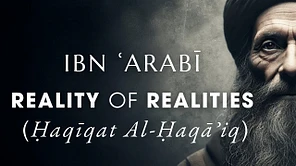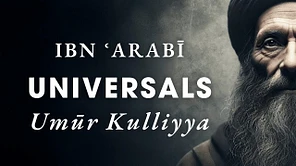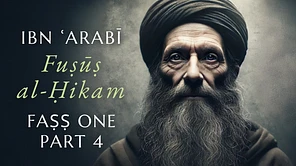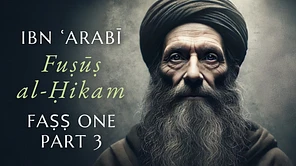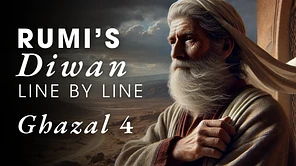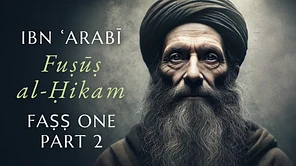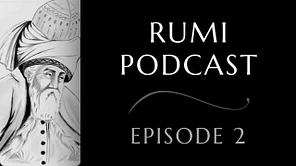Ibn ʿArabī’s doctrine of Waḥdat al-Wujūd (Unity of Existence) is one of the most profound and debated theories in Islamic mysticism. In this episode, we explore his metaphysical vision—how all existence is ultimately one, and everything we perceive is a manifestation (tajallī) of the Divine Reality (al-Ḥaqq).
🔍 What You’ll Discover in This Episode:
✅ Ibn ʿArabī’s explanation of existence as a singular reality
✅ The role of divine self-disclosure (Tajallī) in creation
✅ The Fixed Entities (aʿyān al-thābita) and their role in the cosmos
✅ How the Perfect Human (al-Insān al-Kāmil) reflects divine attributes
✅ The theological, sufi, and philosophical criticisms and controversies surrounding his ideas
🔹 "Tanzīh" (تنزیه): incomparability, transcendence. "Tashbīh" (تشبیه): similarity, immanence.
❗️ Important: Technically, "tashbīh" means "similarity," not necessarily "immanence." I use "immanence" to give the intended "similarity" a sense of "indwelling." I use "God is immanent in the world" instead of "God is similar to the created" to emphasize His "dwelling in the world."
🔥 Why does this doctrine matter today? Ibn ʿArabī’s teachings bridge the gap between philosophy, spirituality, and modern self-discovery—inviting us to see the world as a reflection of the Divine.
📖 My recently published book (The Oneness of Being in Ibn ʿArabī and Plotinus): [https://www.researchgate.net/publicat...]
🔻 My recent publications: [https://istanbul.academia.edu/RasoulR...]
🔻 My Questions for You:
- Do you think Ibn ʿArabī’s doctrine of Waḥdat al-Wujūd resolves the paradox of divine transcendence and immanence?
- How does Ibn ʿArabī’s idea of creation as a mirror help us understand our own existence?
- Is the world ultimately real or an illusion according to Ibn ʿArabī? What do you think?
- Can Ibn ʿArabī’s metaphysics provide insights for modern philosophy and psychology?
⭐️ Exclusive Ibn Arabi Course: Watch the next episode.
🙏 If you enjoy the content and wish to support the channel, your kindness would go a long way.


